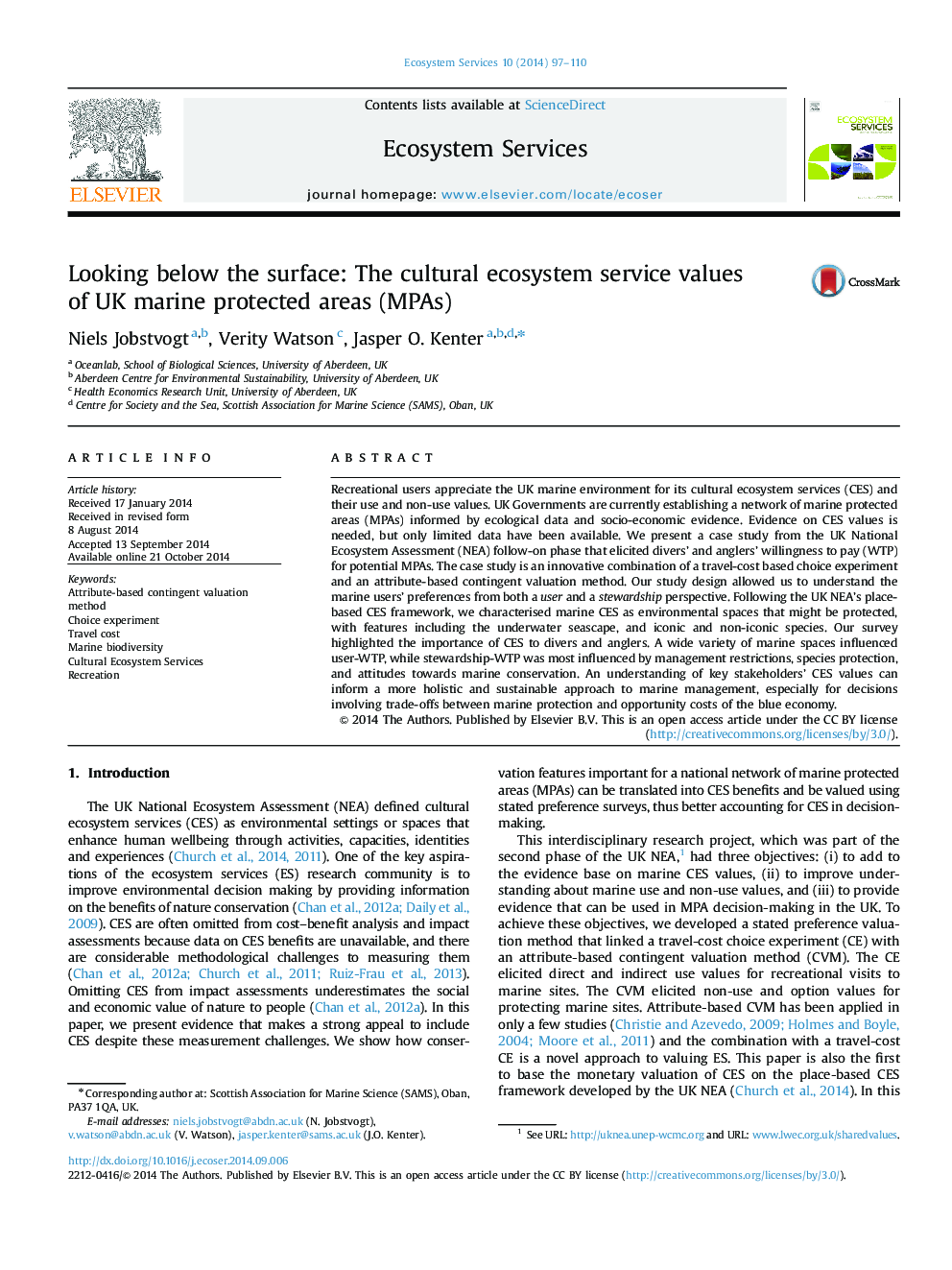| Article ID | Journal | Published Year | Pages | File Type |
|---|---|---|---|---|
| 6556871 | Ecosystem Services | 2014 | 14 Pages |
Abstract
Recreational users appreciate the UK marine environment for its cultural ecosystem services (CES) and their use and non-use values. UK Governments are currently establishing a network of marine protected areas (MPAs) informed by ecological data and socio-economic evidence. Evidence on CES values is needed, but only limited data have been available. We present a case study from the UK National Ecosystem Assessment (NEA) follow-on phase that elicited divers' and anglers' willingness to pay (WTP) for potential MPAs. The case study is an innovative combination of a travel-cost based choice experiment and an attribute-based contingent valuation method. Our study design allowed us to understand the marine users' preferences from both a user and a stewardship perspective. Following the UK NEA's place-based CES framework, we characterised marine CES as environmental spaces that might be protected, with features including the underwater seascape, and iconic and non-iconic species. Our survey highlighted the importance of CES to divers and anglers. A wide variety of marine spaces influenced user-WTP, while stewardship-WTP was most influenced by management restrictions, species protection, and attitudes towards marine conservation. An understanding of key stakeholders' CES values can inform a more holistic and sustainable approach to marine management, especially for decisions involving trade-offs between marine protection and opportunity costs of the blue economy.
Related Topics
Life Sciences
Agricultural and Biological Sciences
Agricultural and Biological Sciences (General)
Authors
Niels Jobstvogt, Verity Watson, Jasper O. Kenter,
